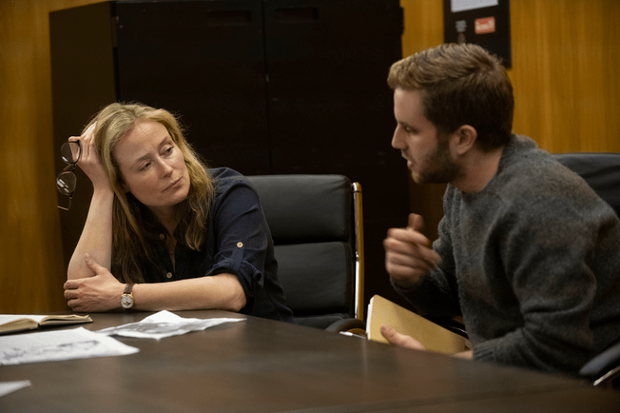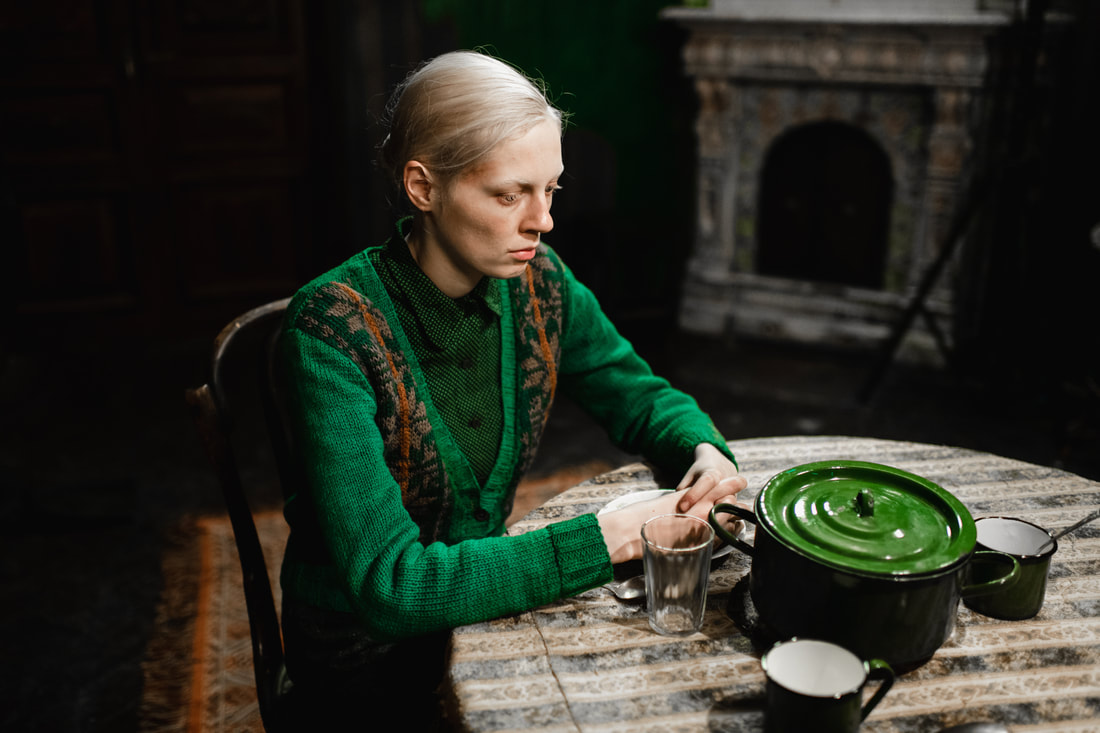 Kate Winslet as Mary Anning (L) and Saoirse Ronan as Charlotte Murchison (R) in AMMONITE. Courtesy of Neon. Kate Winslet as Mary Anning (L) and Saoirse Ronan as Charlotte Murchison (R) in AMMONITE. Courtesy of Neon. With its poster of Kate Winslet and Saoirse Ronan looking wistfully out onto the sea, Francis Lee’s Ammonite, a period romance inspired by the life of English Paleontologist Mary Anning, has certainly set high audience expectations for itself. Although Lee constructs a fictional romance between Anning and her fellow geology enthusiast, Charlotte Murchison, for his film, Ammonite is less about speculating the actual details of Mary’s personal life and more about humanizing this often overlooked pioneer for women in science in a context of connection and intimacy. Although Ammonite more than hits the target with technical mastery and beauty, creating a fictionalized version of Anning whose weathered soul and loneliness bites through the screen, the romance itself lacks the chemistry and nuance that would have taken it to the next level.
0 Comments
Originally published on Elements of Madness Although we’re just two months into the new year, 2020 has already seen the landmark trials of two immensely powerful figures who were both accused of abusing their power in different ways: President Donald Trump, who was acquitted by the U.S. Senate at the conclusion of his impeachment trial, and former film producer Harvey Weinstein, who was convicted of rape and sexual assault in late February. While public response to these trials and their outcomes is sharply divided, such power scandals are always sure to hook a massive audience. These stories bring followers not only to news outlets, but to the movies as well. The recent film Bombshell (2019), for example, revisited the 2016 sexual harassment scandal at Fox News. This week, another political scandal will play out on the big screen with Ricky Tollman’s feature directorial debut, Run This Town. Packed with suspense from start to finish, Run This Town tells the story of late Toronto mayor Rob Ford, who was exposed for drug abuse in 2013. Run This Town reimagines the scandal through the eyes of a group of ambitious young adults at the start of their careers.
Originally Published on Elements of Madness With just one other feature film under his belt (Closeness, 2017), Russian director Kantemir Balagov takes on a challenge with his second feature, Beanpole. The film packs a complex story of female friendship and desire that requires precise characterization and emotional nuance. Balagov certainly delivers with this exceptional film, demonstrating both his technical skill and his gift for storytelling. With Beanpole, Balagov uses the devastating setting of war-torn Leningrad to dissect the human need for intimacy in a manner that is both honest and biting.
Originally published on Elements of Madness As early as 1945, two years before the liberation of Auschwitz, filmmakers began to grapple with the challenge of preserving Holocaust memory on screen. Directors like Mark Donskoy and Wanda Jakubowska took great risks with their films, The Unvanquished (1945) and The Last Stage (1948), respectively, which were some of the first to depict the mass violence of the Holocaust. Since the release of these early films, directors have continued to use cinema to preserve Holocaust memory and honor victims, survivors, and those who risked their lives to help. With the 75th anniversary of the liberation of Auschwitz on January 27, 2020, it seems there are still more stories to tell about these events, stories and perspectives that have yet to be explored on the big screen. When director Matthew Rosen learned of one such story, that of former president of the Philippines Manuel Quezon and his efforts open the borders of his country to Jewish refugees, Rosen decided to bring the narrative to the screen with his feature film debut, Quezon’s Game.
|
"Our embodied spectator, possibly perverse in her fantasies and diverse in her experience, possesses agency...finally, she must now be held accountable for it." Categories
All
|





